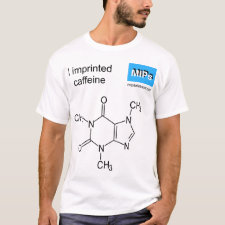
Authors: Wang L, Tan HC, Zhao DD, Liu L, Lei FH, Huang ZY, Gong Q
Article Title: The Preparation of Caffeine Molecularly Imprinted Electrochemical Sensor cross linking with Maleic Rosin Acrylic Acid Glycol Ester.
Publication date: 2012
Journal: Chemical Journal of Chinese Universities
Volume: 33
Issue: (8)
Page numbers: 1708-1713.
Alternative URL: http://www.cjcu.jlu.edu.cn//EN/abstract/abstract24295.shtml
Abstract: Using the molecular imprinting technique, a novel polymer was prepared by utilizing maleic rosin acrylic acid glycol ester as the cross linking agent, caffeine as template and methyl acrylic acid as functional monomer. A molecularly imprinted polymer membrane was synthesized in vacuum drying oven by free radical polymerization. Cyclic voltammetry (CV), differential pulse voltammetry (DPV) and electrochemical impedance spectroscopy (EIS) characterize the membrane of electrochemical behavior in electrode fabrication process. Under optimum conditions, it was found that the response of peak currents were linear to the concentration of caffeine from 3.0 x 10-6 to 2.7 x 10-3 mol/L (linear regression coefficient=0.9966) with a detection limit of 1.1 x 10-7 mol/L (S/N = 3). The electrochemical sensor displayed excellent repeatability, high sensitivity, long-term stability, and good selectivity. The sensor was applied to the determination of caffeine in coca-cola samples with satisfactory results.
Template and target information: caffeine
Author keywords: Maleic rosin acrylic acid glycol ester, caffeine, molecularly imprinted polymer, Electrochemical sensor



Join the Society for Molecular Imprinting

New items RSS feed
Sign-up for e-mail updates:
Choose between receiving an occasional newsletter or more frequent e-mail alerts.
Click here to go to the sign-up page.
Is your name elemental or peptidic? Enter your name and find out by clicking either of the buttons below!
Other products you may like:
 MIPdatabase
MIPdatabase









